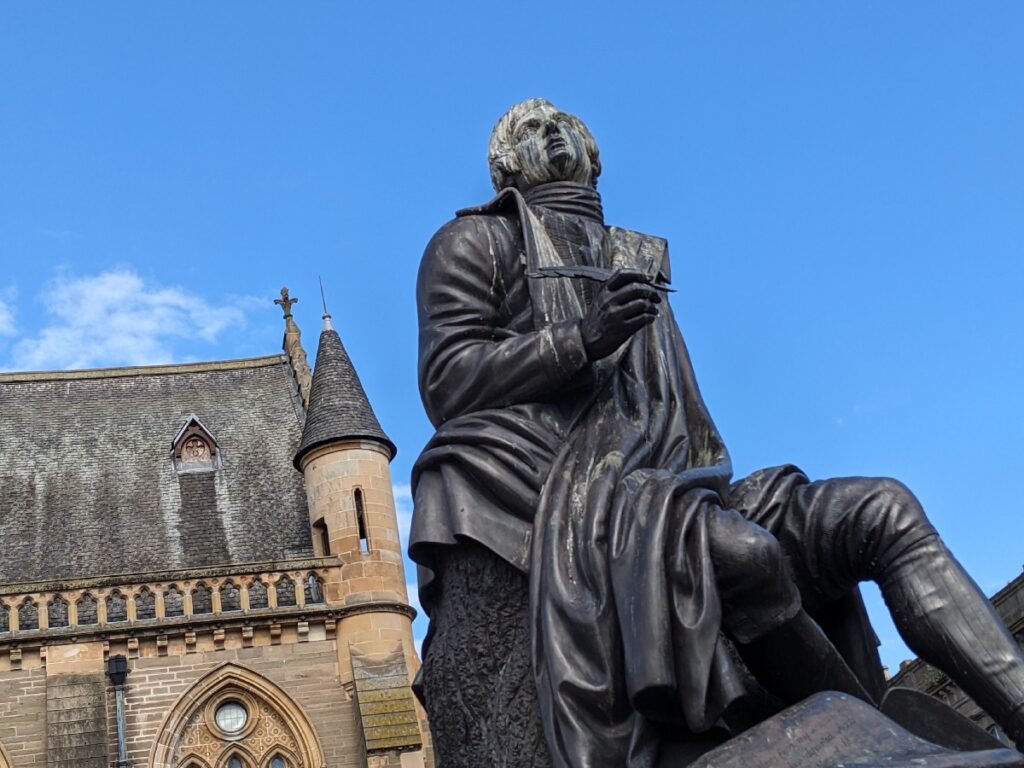25th January 1759
Poet Robert Burns is born in Ayrshire
Burns was born in Alloway, in what is now the Burns Cottage Museum. He spent the first seven years of his life there before his family moved to Mount Oliphant farm in Alloway. He had a patchy education, much of which was conducted while he was also employed labouring on the farm.
He wrote his first poem – Handsome Nell – in autumn 1774. Three years later, the family moved to Lochlea, where Burns’ father, William, died.

Robert Burns’ first published work
For a while it looked like Burns might be heading to Jamaica. He was offered a position there, with a £30 salary, but had no way of paying his fare. It was 1786 and he had, by that point, written a considerable body of poems, which he sent to the Kilmarnock printer, John Wilson, to publish, in the hope that the revenue would be sufficient to cover his passage.
Thus, Burns’ first published work was revealed to the public that summer, and he was an immediate celebrity. This new-found fame was sufficient for him to delay his trip to Jamaica which, ultimately, he never undertook at all. Instead, he moved to Edinburgh to work on an expanded collection. He met with William Creech, who published the first Edinburgh edition of his work, and the two became firm friends. Creech even became the subject of two of Burns’ later poems.
Auld Lang Syne
He didn’t stay long in Edinburgh. By early 1788 he was back in Dumfries, farming and writing Auld Lang Syne. He later took a job with Customs and Excise and, in 1790, wrote the 220-line Tam O’ Shanter.
Burns’ life was already drawing to a close. He was ill, and there’s speculation that he had rheumatic heart disease, an infection of the lining of his heart, lymphoma, or some other ailment that was exacerbated by the poor weather through which he was required to travel as part of his job with Customs and Excise. He died aged just 37, leaving behind five children.
His birthday is celebrated every 25 January far beyond Scotland, and his poetry remains popular to the present day. In 2010, an STV programme and public vote to find the greatest ever Scot put Burns in the top spot, one position ahead of William Wallace.
Other events that occured in January
FREE Scotland history newsletter
Don't miss our weekly update on Scotland's fascinating history. We promise never to sell your data to anyone else, and there's a super-easy unsubscribe link on the bottom of each email so you can leave whenever you want.
